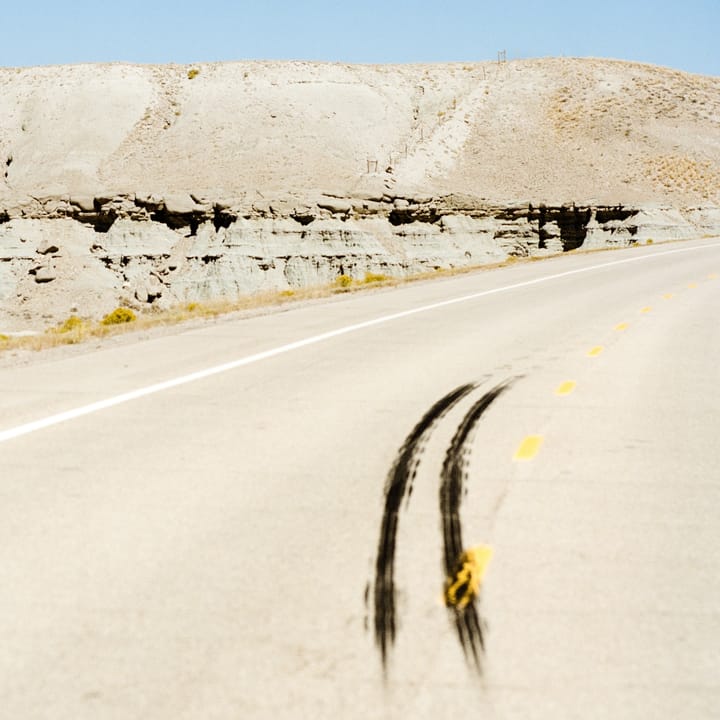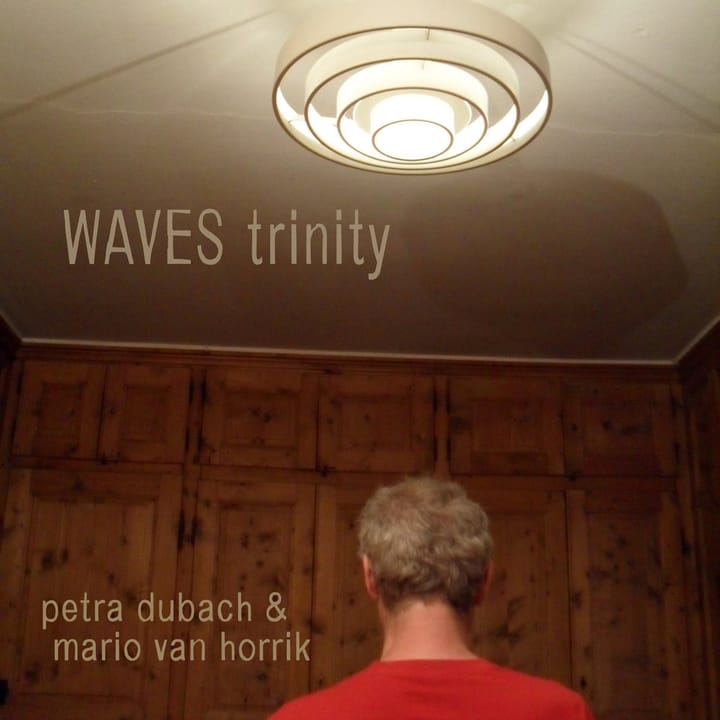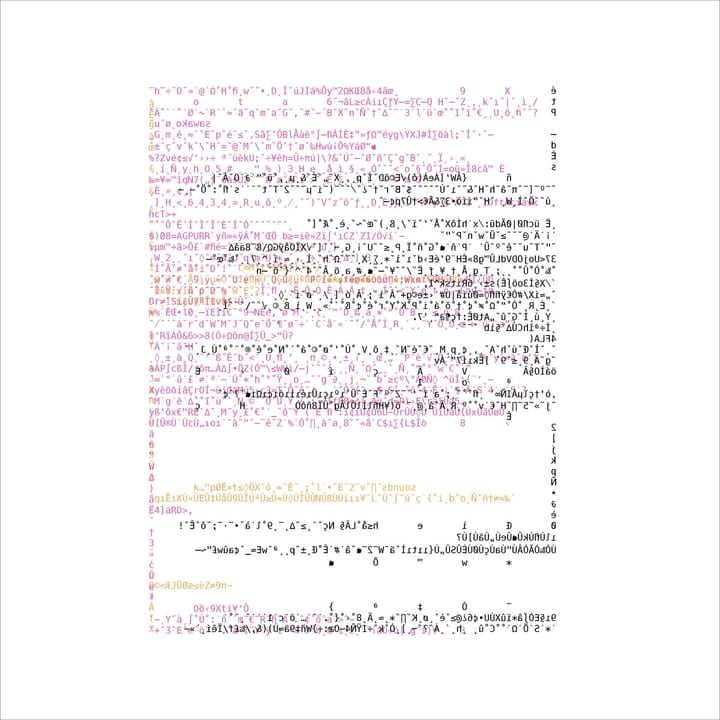Feature: Records of 2024
Here's just a handful of the records that have really affected me in 2024.
Zosha Warpeha – silver dawn (Relative Pitch Records)
Swooping and repetitious improvisations for the Hardanger d’amore fiddle, captured "in a sun-filled room” over two days. There’s a calligraphic energy here, as if Warpeha were drawing a single figure over and over again, pen lines blending and deviating. She pauses frequently, relishing the resonances of the fiddle’s sympathetic strings, embracing the gentle impression of the sunlight.
Kenneth Kirschner – Three Cellos (greyfade)
A painstaking acoustic transposition of a Kirschner’s digital composition “July 8, 2017”, written in notation by Joseph Branciforte and played by cellist Christopher Gross. I imagine this one as a contorted staircase: graceful and floral-like in its writhing shape, yet perilous for its uneven drops and dizzy slants.
Belong – Realistic IX (Kranky)
What if someone had a dream containing a previously-unheard outtake from My Bloody Valentine’s Loveless, and then tried to capture this song upon waking in the morning? The same small cluster of melodies recur throughout this surreal, semi-abstracted set, like various failed attempts to render a music that’s rapidly slipping out of recollection. It’s shoegaze at its wordless weirdest, forever toying with the listener faculties of memory, anticipation and deja vu.
Chris Corsano – The Key (Became the Important Thing [and Then Just Faded Away ] ) (Drag City)
This half-hour contains so much: motorik post-punk, patient explorations of percussive texture, moments when everything caves into improvisatory ecstasy. It's always a rush when Corsano's playing gets explosive, but The Key is as much about the textures he rouses from his materials, ranging from cymbals akin to raining bronze and the vibratory fizz of Corsano's self-made string drum.
Gerald Cleaver – The Process (Positive Elevation)
A kaleidoscopic take on Detroit techno by drummer Gerald Cleaver, with rhythms spiralling in several disparate directions simultaneously. The melodies are strange slurps of dissonance and shimmering harmonics, draped like rippling sheets over lop-sided drum machine pulses. The decision to present The Process as a 37-minute piece feels crucial: it's an uninterrupted exercise in momentum and fluid mutation.
9T Antiope – Horror Vacui (American Dreams)
Songs for creaking floorboards and nocturnal hallucinations. Horror Vacui centres on a fictitious house, tended to by mysterious crimson-suited caretakers, which one day explodes and leaves no trace. The voice of Sara Bigdeli Shamloo drips richly within a lattice of strings that are bowed, struck and scraped by Nima Aghiani; vowels and tones hang like cords and wires, jutting out from a shadow that seems to hold part of the album beyond the edges of perception.
Kali Malone – All Life Long (Ideologic Organ)
Every time, I find myself overwhelmed by the opening moments of “All Life Long (for voice)”. There’s something about that melody coming back, having initially appeared in a rendition for organ earlier in the set. The voices collapse over themselves in staggered harmonisation, and as they utter the words “crying in the sand”, the singers seem to be genuinely engaged in some sort of operatic weeping. All Life Long feels like a despondency that keeps coming back; mutated, yes, but discernible as the same form through its steadfast pace and weight.
sawako – sounds (12k)
Back in 2003, Kenneth Kirschner was sent a golden CD-r from sawako, simply titled “sounds”. Kirschner presumed that it was a response to his request for sound materials for a new piece, although sawako never clarified. Was this a whole album? A collection of abandoned odds and ends? The beauty is within the distance and the ambiguity; many of these vignettes carry the sense of capturing something behind a wall, or outside a window. Whatever this is, it is not “here” – it’s an elsewhere, received but not understood. RIP sawako.
Autechre – AE_2022 – (Warp)
Back in November, Autechre added 12 instalments to their ongoing collection of recorded live sets. This is my favourite Autechre material to date, and it feels like they’ve struck upon a delivery mechanism that aligns with the galactic collisions that constitute their modern-day sonics: an indefinite continuum, unbounded by the restrictions of physical format. The final recording, “AE_LYON_070524” is perhaps the most frenetic and invigorating of the lot, and the excitement is only heightened by the fact that it’s not a concluding gesture, but an indication of the direction of travel.
Pat Thomas – This Is Trick Step (577 Records)
Cooked up in a single weekend, This Is Trick Step sees Thomas invent a parallel universe in which Morton Feldman and J Dilla collaborate. It’s a slippery set of drum machine stop-starts, hype-man punctuations and car-horn harmonies, possessing all the fizz that you might expect from a record captured on the fly. It’s a perfect encapsulator of Thomas’ improvisatory energy: playful and light, yet paradoxically dense with masterful little intricacies.
Félicia Atkinson – Space As An Instrument (Shelter Press)
A jostle of field-recorded pockets, coastal breezes and uncertain whispers, with piano poured down the gaps like a liquid narrator, pulling all of these time-spaces into coherence without explaining what unifies them. Space As An Instrument feels like it reshapes itself to every bespoke listening circumstance, positing a different set of questions to your listening chair as it presents to your headphone forest walk.
Dreamage – S/T
A new project by Christopher King and Jesse Kees from This Will Destroy You, and a continuation of TWDY’s more degraded, hallucinatory edge. Even at its most idyllic, facets of Dreamage are always failing: slipping out of tune, retreating into worn tape or into half-remembered distances. It’s a daydream that’s gone on for too long, to the point that a sadness, or perhaps regret, is starting to seep into the gooey hues.
Sun Yizhou – typewriter in the rain (Aloe Records)
A combination of mixing board noise floor and the Boss PS-2 pitchshifter/delay. No other sources, no intervention from Sun Yizhou. The result is like water dripping intermittently on tarpaulin. Each track is simply a variation on this premise – the plops hit differently, the background noise adopts a different texture – and there’s something about the idling greyscale of typewriter in the rain that seems to activate a very primal form of listener serenity.
Leila Bordreuil – 1991, Summer, Huntington Garage Fire (Hanson Records)
At the base of this album is a VHS recording captured by the family of Leila's partner, made for insurance following a fire in their garage back in 1991. The cassette's first side is a live performance during a cookout in Leila's backyard, which climbs to a frenzy of cello wails and thick distorted drones over the course of 20 minutes. One can imagine the scree flooding over the garden fences and out into the street. If this is the full-blown cinematic feature, the remaining six tracks are the cryptic short film vignettes, wielding the VHS audio into unsettled surges of voltage resonance, blustering wind and analogue degradation.
Liew Niyomkarn – In All Possible Places At Once (Chinabot)
The notion of time-space within Niyomkarn's music is playful and porous. We hear her experimenting with handcrafted stringed instruments at her home in Brussels; curious bouts of vibrant birdsong; synthesisers captured at WORM in Rotterdam; poetry devised to accompany racing boat processions. These disparate sources drift through one another, blissful disregarding any time-space incongruences, like memories of an elsewhere ambushing the so-called here and now.
Ava Rasti – The River (FatCat Records)
The River uses extracts of "famous classical pieces" as its basis. She takes the grandeur of the original compositions and refracts it into a sort of solemn, widescreen yearning, with chords tilting like water poured between two glasses, one vessel always depleted. The whole album has a surging energy that never ceases, which fits perfectly with the album's concept of location, memory and the "unreliable narrator": how the flow of time and subjectivity of perspective mean that locations, regardless of their geographic consistency, are never fixed points in terms of our comprehension of them.
Zachary James Watkins – Affirmative Action (SIGE Records)
In every sense, Affirmative Action is multidirectional: a collision of tuning systems (equal temperament and just intonation), manifestations of creative practice (composed with notation, improvised with guitar and electronics, written for professional ensemble), splays of mood (fizzing ecstasy, throbs of curiosity, eruptive laments in the midst of oppressive ideologies). Watkins' deep understanding of Resonance, capital "R", means that every single moment on this record is rich in sentiment, in conflict, in possibility.
Carlos Giffoni – Dream Walker (Ideologic Organ)
Much of this album was composed while Giffoni was on the edge of sleep. It is beautifully sequenced, blurring the boundaries between tracks, rendering synthesiser gestures in these glossy, gravity-defiant globules and swollen loops. I imagine this album as a sea of molten gold. As with all dream images, it manifests with a matter-of-factness that defies any logical interrogations as to how it got there.
Yara Asmar – Stuttering Music (Ruptured Records)
Asmar's music is an unravelling of solidity. Metals, electronics and even the human form have their edges tugged apart, pooling the innards of objects into an amassment of indefinable sentiment, of fuzzy and fallible memory, of whistles like connective ropes hurled into an idealised elsewhere. Her melodies are gorgeous but never vividly asserted, instead appearing like happenstance cloud formations, inciting the listener's own pattern-recognition powers in order to be fully realised.
Trigger Object – Ghost Bros OST (EMS RECORDS)
I am obsessed with how this music moves. There's the high-level motion of the primary refrains – the cave-sweeping synth fanfares, the semi-automatic dub stomps – and then there are the wriggling electronic artefacts, high-frequency squirms and drum machine glitches that cover every inch of Ghost Bros OST, and gift the album a ceaseless twitching rapidity. Every playback sounds like the album is being performed live right in front of you, the feedback gushes still piping hot.



